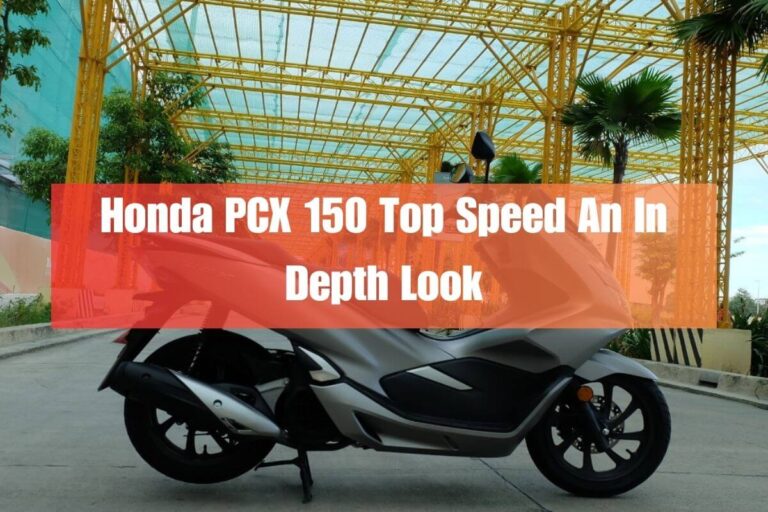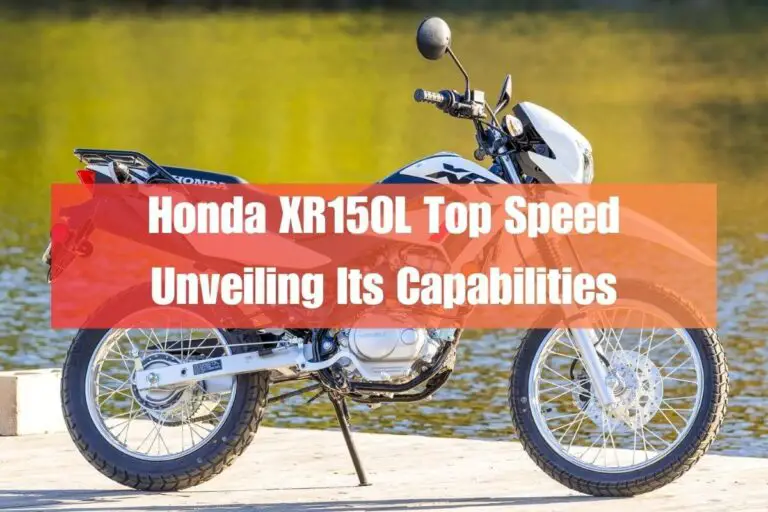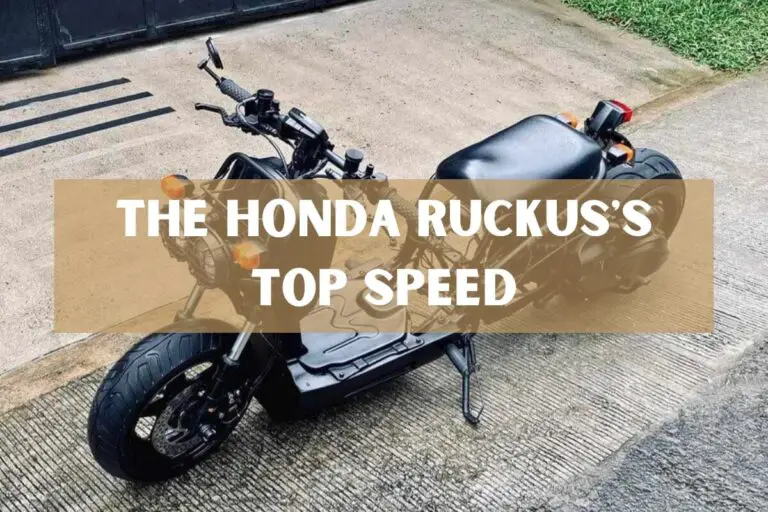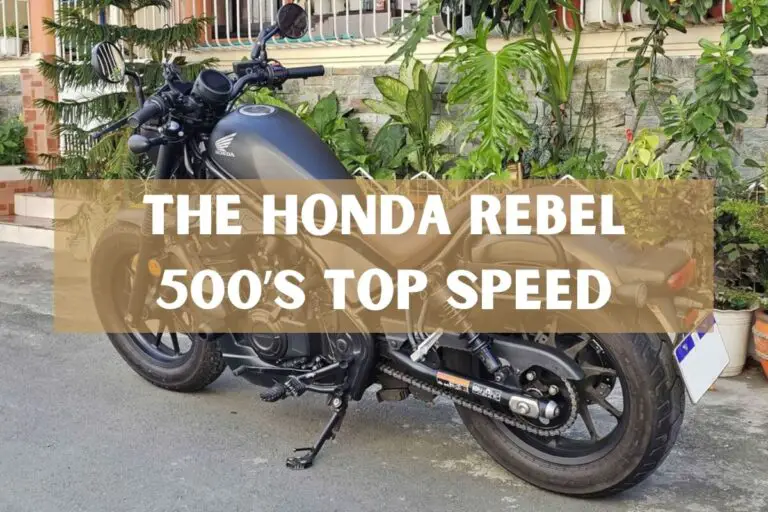Honda Metropolitan Top Speed & Performance: Full Scooter Guide
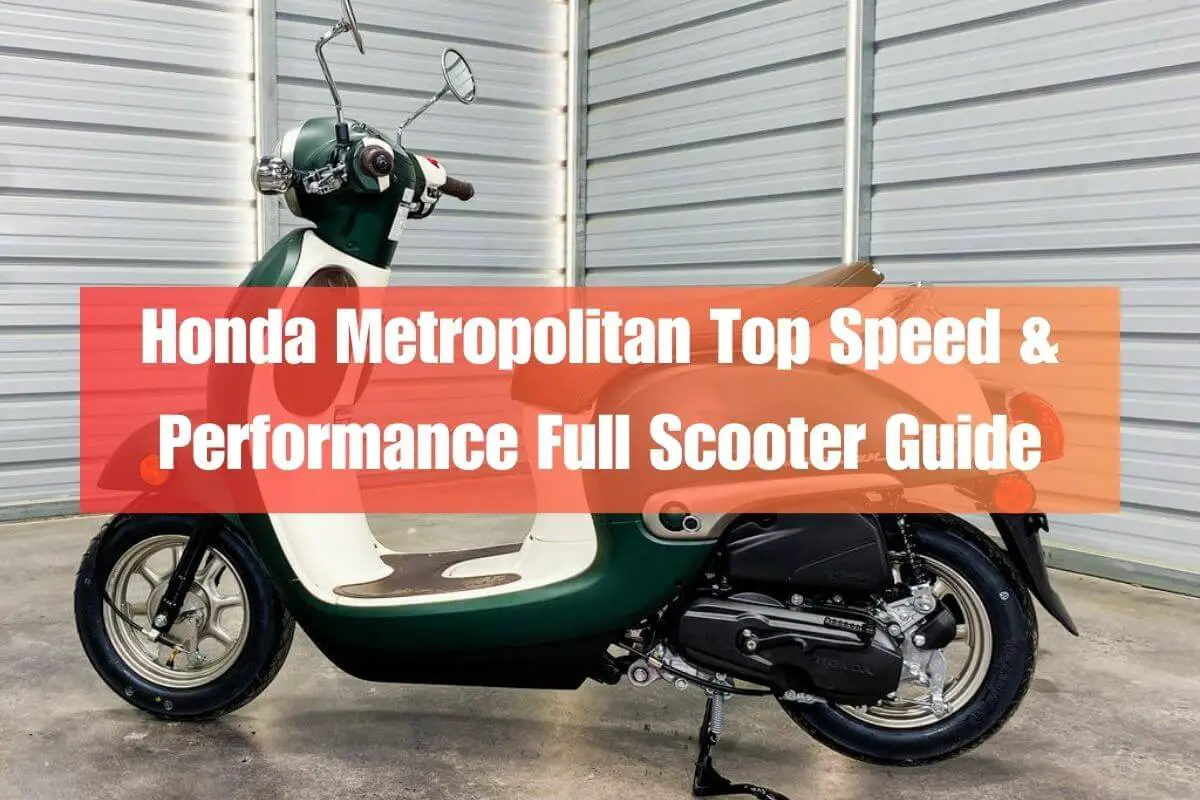
For buyers considering the classic Honda Metropolitan scooter, one of the most common questions is “What’s the top speed?” While outright performance may not be the top priority for Metropolitan buyers, it’s still useful to understand the speed capabilities and factors that impact it. In this in-depth guide, we’ll explore the Metropolitan’s top speed, accelerating getting up to speed, engine specs, how it compares to rivals, owner perspectives and more.
Honda Metropolitan Top Speed: What to Expect
So what is the actual top speed of the Honda Metropolitan scooter? Most owners and reviews cite a top speed in the range of 35-40 mph. This makes the Metropolitan well-suited for zipping around cities and urban areas, which is its intended use case.
However, it’s worth noting that an individual scooter’s top speed can vary somewhat depending on factors like:
- Rider/Passenger Weight
- Terrain (Flat roads vs Hills)
- Wind Conditions
- Manufacturing Variances
- Maintenance and Tuning
With no vehicle or rider weight, a brand new Metropolitan might be able to reach slightly higher top speeds around 40-42 mph on flat ground with no wind. But in typical real-world riding conditions with an average rider’s weight, most will realistically top out closer to 35-38 mph.
For city and neighborhood commuting duties, this top speed range is perfectly adequate. But buyers wanting higher speeds for rural roads or highways may want to consider a larger scooter model.
Metropolitan’s Engine Specs
What allows the Honda Metropolitan scooter to reach those zippy top speeds up to 40 mph? The driving force is its relatively high-powered 49cc liquid-cooled single-cylinder engine. Here are the key engine stats and specs:
| Specification | Value |
|---|---|
| Engine Type | 49.4cc liquid-cooled 80° single-cylinder four-stroke |
| Valve Train | OHC two-valve |
| Bore x Stroke | 39.5mm x 40.3mm |
| Compression Ratio | 12.0:1 |
| Horsepower | 4.4 hp @ 8,000 rpm |
| Torque | 3 lb-ft @ 6,000 rpm |
| Fuel System | Fuel Injection w/ 19mm throttle bore |
| Transmission | Automatic V-Matic belt drive |
While the diminutive 49cc displacement may not sound impressive on paper, this little single-cylinder engine punches above its weight class. The fuel injection system, high 12.0:1 compression ratio, and compact overall design allow it to produce a very capable 4.4 hp and 3 lb-ft of torque.
When matched with the Metropolitan’s light overall weight of just 179 lbs, this gives it a very favorable power-to-weight ratio for ultra-nimble performance around town.
Accelerating from 0 to Metro’s Top Speed
In addition to its outright top speed, the Honda Metropolitan also delivers quite peppy acceleration from a stop to get up to those speeds quickly. Many owners praise how “zippy” and responsive the little scoot feels when you twist the throttle.
One Metropolitan owner on Motorcycle.com said:
“I was really surprised by how quickly it gets off the line and up to 30-35 mph cruising speed. For such a small and affordable scooter, the acceleration is really great.”
Compared to rival scooters like the Yamaha Zuma 50F or Honda Ruckus in the same 50cc class, the Metropolitan’s acceleration is generally viewed as slightly quicker and more robust. This makes splitting through city traffic a bit easier.
Factors That Influence Honda Metropolitan’s Top Speed
As we mentioned earlier, there are a number of variables that can impact how close an individual Metropolitan gets to its upper limits around 40 mph. Let’s examine some of the key factors:
Rider/Passenger Weight
Like any lightweight vehicle, the total weight on board is one of the biggest determinants of a scooter’s performance. An empty Metropolitan with just the fuel weight will accelerate quicker and reach slightly higher top speeds versus one carrying a heavier rider and passenger.
Terrain (Flat Roads vs Hills)
While flat roads allow the Metro to maximize its top speed potential, inclines can significantly hamper its abilities. Steeper hills will quickly bleed speed as the small engine has to work harder against gravity.
Wind Conditions
Strong headwinds create excess aerodynamic drag that saps power from the Metropolitan’s engine. So blustery days can knock a few mph off the top speed capabilities.
Proper Maintenance
Like any vehicle, the Metropolitan’s performance suffers if it isn’t properly maintained. Things like clean air filters, good spark plugs, proper fuel mixture, sufficient oil levels, etc. all contribute to ensuring the engine runs at peak efficiency.
Owner Voices: The Real Metropolitan Experience
But enough of the tech talk – what are real-world owners saying about the Honda Metropolitan’s capabilities and performance? Here are a few candid reviews pulled from around the web:
“My wife and I absolutely love our Metros. Plenty of pep for zipping around town and the styling is so classy. That said, don’t expect to go much over 40 mph no matter how hard you twist the throttle.” – MotorcycleNinja.com
“I downsized from a 250cc scooter to the Metropolitan and have no regrets. It has just enough power to hop onto the highway for short periods, but it definitely chugs up long steep hills. All-in-all great value though!” – Reddit/r/scooters
“If you live somewhere with lots of elevation changes, I’d caution against the Metro. Climbing hills at 20-25 mph is a bit unnerving sometimes. But for flat urban areas, it’s an absolute blast and so easy to park/store.” – MetroScooterForum
As you can see, most owners seem plenty satisfied with the Metropolitan’s spunky around-town performance. The classic styling and Honda reliability get high marks. But some note the limitations for hilly terrain and highway stints.
Modifying Your Metro for More Speed
For scooter fans looking to eke out a bit more top speed performance from their Honda Metropolitan, there are some popular modifications and bolt-on parts available:
- Aftermarket Exhaust Systems: Companies like Yoshimura and others offer free-flowing scooter exhausts that can bump peak power 5-10%.
- Cold Air Intake Kits: Allowing more air into the engine can also extract a few extra ponies.
- CDI/ECU Tuning: Adjusting the engine control unit and ignition timing can optimize power delivery.
However, realistic gains from basic bolt-ons are fairly modest – maybe increasing the Metro’s top speed from 38 mph stock to 42 mph with exhaust, intake and tune. For huge speed increases, more extreme (and illegal) engine mods are required.
It’s also critical to keep emissions and noise levels compliant if you want to avoid run-ins with the law or voiding your warranty. So take that into consideration with any Metropolitan performance mods.
Metropolitan’s Top Speed vs The Competition
While a top speed of 35-40 mph is perfectly adequate for its intended city commuting mission, the Honda Metropolitan is certainly outpaced by some larger scooter and motorcycle models. Here’s a quick comparison to some key rivals:
| Model | Engine Size | Claimed Top Speed |
|---|---|---|
| Honda Metropolitan | 49cc | 35-40 mph |
| Honda PCX150 | 150cc | 60+ mph |
| Yamaha XMAX 292cc | 292cc | 75+ mph |
| Vespa GTS 300 | 278cc | 80+ mph |
| Suzuki Burgman 400 | 400cc | 95+ mph |
Premium models like the Suzuki Burgman 400, with its robust 400cc parallel twin engine, are true highway-capable machines rated for 95+ mph cruising. So buyers with needs for higher speeds and highway travel should look into larger displacement options.
Pros and Cons of Owning a Honda Metropolitan
To summarize the Honda Metropolitan’s speed and acceleration capabilities, let’s outline some of the key pros and cons:
Pros:
✅ Spunky acceleration and 35-40 mph top speed great for urban areas
✅ Classic, iconic styling and Honda reputation for quality
✅ Exceptional fuel economy (100+ mpg)
✅ Light and nimble for navigating congested areas
✅ Lower cost of ownership and maintenance
Cons:
❌ Limited top speed not well-suited for highway travel
❌ Relatively small under-seat storage capacity
❌ Not much power for hauling passengers or heavy loads
❌ Touring range is limited by small 1.2 gallon fuel tank
❌ Performance disappointing on steeper hills and inclines
Top Alternatives to the Honda Metropolitan
While the Honda Metropolitan scooter carves out its niche as an ultra-stylish and economical city runabout, some buyers may want to consider other alternatives depending on their needs.
For those wanting higher top speeds and better highway capabilities, options like the Yamaha XMAX or Suzuki Burgman 400 offer significantly more engine displacement and acceleration. While pricier, these larger scooters are true motorcycles in performance.
The Honda Ruckus or Yamaha Zuma 125 provide burlier designs better able to handle rougher roads and some light off-roading duties versus the Metro’s more street-focused nature.
And for affordability, buyer’s can’t beat models like the Yamaha Zuma 50F or Honda Navi for hundreds less up-front while still delivering that scooter convenience.
Pricing, Availability and Ownership Costs
As of the latest 2024 model year, the Honda Metropolitan scooter carries an MSRP of $2,649. However, buyers should expect to pay closer to $3,000 out-the-door when adding in destination charges, setup fees, etc.
Pricing has remained relatively stable, only creeping up modestly in recent years. A pre-owned, late-model Metropolitan in good condition can typically be found for around $2,300 based on Kelley Blue Book data.
In terms of operating expenses, the Metropolitan shines with its exceptional fuel economy around 100 mpg in mixed riding. This results in phenomenally low fuel costs, even with today’s prices.
Insurance premiums are also quite low for the Metro’s tiny 50cc engine displacement. Typical annual insurance rates are just $75-125 for most owners. Overall, the Metropolitan earns high marks as an economical mode of urban transport.
Is the Metropolitan Right for You?
With such affordable pricing and running costs, the Honda Metropolitan can make an excellent urban runabout or affordable first scooter. Its classic styling and Honda quality/reliability add to the appeal for commuters prioritizing:
- Iconic looks over pure performance
- Low operating and ownership costs
- Maneuverable and easy to park/store
- Short city trips and efficient errand running
However, the Metropolitan may not be the best choice for those with needs like:
- Traveling at highway speeds or longer distances
- Carrying passengers regularly or heavy payloads
- Managing steeper hills and elevation changes
- Higher outright performance over MPG
In those cases, considering larger displacement scooters/motorcycles like the Honda ADV150, PCX150, or Rebel 300 may make more sense as the Metropolitan’s limitations could become bothersome.
Common Honda Metropolitan Problems and Fixes
Like any vehicle, the Honda Metropolitan scooter isn’t 100% immune from issues and problems arising with regular use and age. Some of the more common troubles owners cite include:
Hard Starting/Stalling
Intermittent no-start situations or unexpected stalling while riding can often be caused by:
- Fouled spark plugs needing replacement
- Clogged idle air jets requiring a carburetor cleaning service
- Bad electrical connections or failing starter systems
Bogging or Sputtering
If the Metropolitan struggles with power delivery and feels “bogged down”, potential culprits include:
- Clogged air filters needing service
- Vacuum leaks in the intake system
- Fuel delivery issues (bad fuel pump, clogged injectors)
Suspension Clunking/Rattles
Over thousands of miles, it’s common for suspension bushings and mounting hardware to develop some play and looseness, resulting in unpleasant clunks and rattles from the front end. Regular inspection and tightening are required maintenance items.
For any persisting drivability issues affecting the Metro’s power or running condition, it’s highly advisable to have your scooter diagnosed and repaired by an authorized Honda dealer service center.
Frequently Asked Questions
How fast does the Honda Metropolitan go?
The top speed of the Honda Metropolitan scooter is around 35-40 mph for most owners. Factors like rider weight, terrain and wind conditions influence exact top speed.
Is the Honda Metropolitan good for highway driving?
No, the Metropolitan’s top speed around 40 mph makes it unsuitable for extended highway travel where speeds of 50+ mph are needed. It’s designed strictly for urban, city commuting use.
How far can a Honda Metropolitan go on one tank?
With a 1.2 gallon fuel tank and fuel economy around 100+ mpg, the Metropolitan can travel approximately 100-120 miles on a single tank under mixed riding conditions.
What’s included in a Honda Metropolitan tune up?
A typical Metropolitan tune up service includes air filter cleaning, spark plug replacement, carburetor cleaning/adjustment, fluid level inspections and tightening up loose components.
How many miles can a Metropolitan last?
When properly maintained, a Honda Metropolitan engine and drivetrain can reliably last 30,000-50,000 miles or more. Non-powertrain components like brakes, batteries and tires will require more frequent replacement intervals.
Can a beginner ride a Honda Metropolitan?
Yes, the Honda Metropolitan’s compact size, automatic transmission and relatively low speeds make it an excellent option for first-time or new riders to learn on. It’s very approachable and forgiving.
Final Thoughts
While no speed demon by any stretch, the Honda Metropolitan scooter still delivers admirably spunky acceleration and top speed performance for its miniature 49cc engine displacement. Owners can expect zippy around-town bursts up to the Metro’s 35-40 mph top speed range.
The classic Metropolitan styling, linked to Honda’s long heritage and reputation for quality, certainly holds tremendous appeal. But it’s the incredible fuel efficiency often exceeding 100 mpg that truly allows this scooter to shine as an economical errand runner and city commuter bike.
Reasonable buyers understand the limitations of the Metropolitan’s pint-sized power plant – namely struggles with steeper hills, limited storage space, and being out of its element on highways. Those with different priorities desiring higher performance are better served by larger models.
However, for the right urban dweller who meshes well with the Metropolitan’s unique blend of retro cool, efficient commuting, and uncompromised Honda quality – this iconic scooter remains in a class by itself even after all these decades. Just don’t expect to blow anyone’s doors off at the stoplight Grand Prix.

